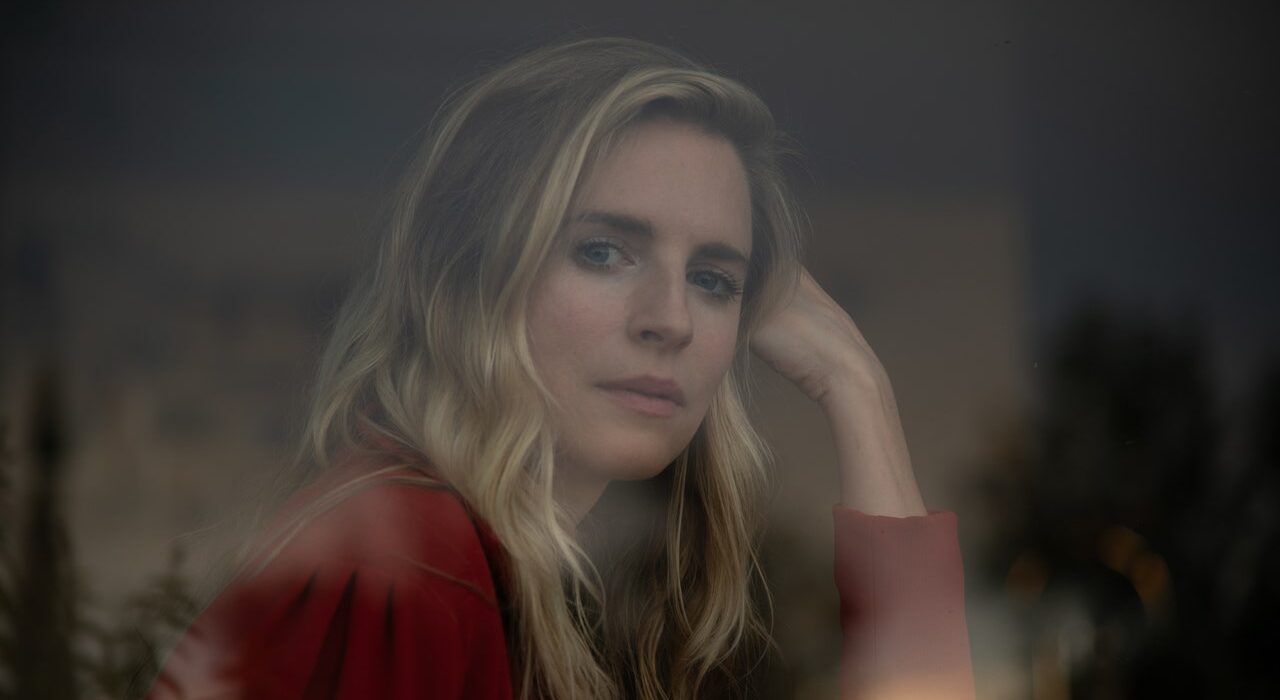Vogue: Obviously the show has been delayed a few times, both due to COVID and the Hollywood strikes. How does it feel to be finally putting it out into the world?
Brit Marling: Oh, gosh. We started thinking about this idea in 2018, and in 2019 it started to take more shape. In 2020, we went out to pitch it, then it took a year to write, then it took a year and some to make because of the pandemic, and then we were editing. It’s been a long time coming, and I think when you invest that amount of time in something, and so much of your life and energy, it’s hard not to care deeply about its release into the world and hope that it gives people something, or moves people in a way that makes it feel worth that investment of time, I guess.
Going back to the beginning, I know that you and Zal spend a lot of time coming up with all sorts of ideas together for projects. What is it about an idea that makes you stop and say, Wait, I really think this could be something?
I think with this in particular, it was just a strong feeling about a character. Darby Hart, as a character, sort of sprung up fully formed, in a way. Sometimes it takes a long time to find a character’s voice as you’re writing, and you have to try and try, and you can’t answer questions very easily about the character. If you were like, What’s the character’s favorite color? What kind of car would they drive? What’s their idea of a wonderful afternoon? If you can’t answer any question really easily about them, it’s like they’re not fully there yet. But with Darby, it was always just there. You asked, what’s her favorite color? Red. What does she like to do on an afternoon off? She’d be on her computer, solving these cold cases. She spoke to us very clearly from the beginning. And I guess when that happens, you just feel compelled to write it—it’s almost like you have to write it. And I think part of that feeling also came from the pandemic, because it was less about thinking, What do I want to do? What would be a good next step in my work and career? Instead of those outside thoughts coming in, it was very internal. Things felt so fraught and so fragile at that time, and so we found ourselves asking more: What feels essential to tell at this time, with all this adversity? And what feels like it could have some kind of use in the world?

